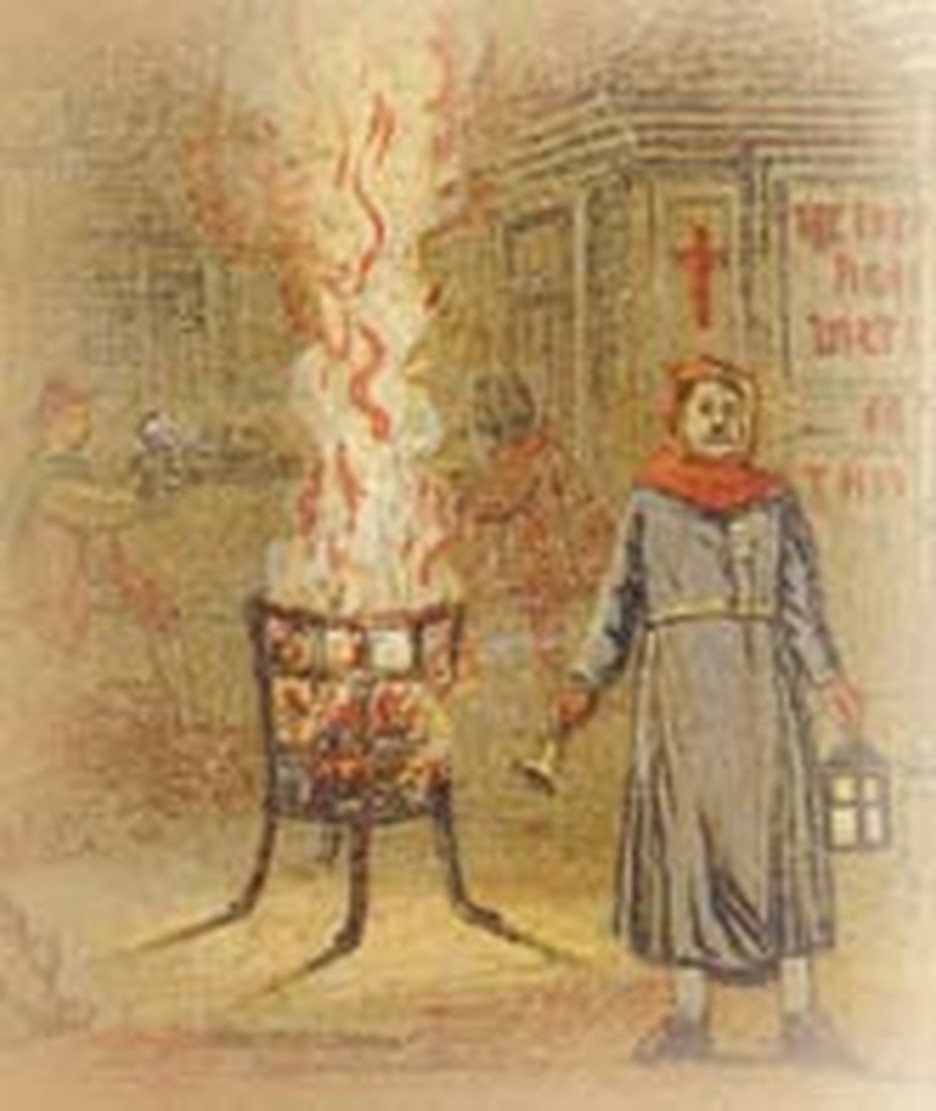
Though she was undoubtedly the most well-known and influential woman in the England of her day, today Hannah More's name is sadly virtually unknown. Who was this now obscure woman who counted so many leaders and prominent persons among her friends?
Born near Bristol, England in 1745, Hannah was the fourth in a family of five girls. Her father, Jacob More, was a schoolmaster who saw that his daughters were well-educated. While still in their teens, the three oldest More daughters established a girls' boarding school in Bristol which soon became famous. Hannah completed her education there and before she was eighteen had written A Search for Happiness, a play which was later published and widely read.
In 1772 Hannah took her first of many trips to London where she soon became an important social and literary figure, enjoying the company and friendship of artist Sir Joshua Reynolds, famous actor David Garrick, statesman Edmund Burke, and writer Samuel Johnson. David Garrick himself directed her successful play Percy . John Wesley wrote Hannah to encourage her in her literary pursuits because her Christian example could greatly influence the London artistic and literary set. However, when her friends David Garrick and Samuel Johnson died, London society lost its glamour and interest for Hannah.
After 1785 she increasingly turned to more distinctly Christian work. Pastor John Newton, author of "Amazing Grace," became her spiritual advisor, and young William Wilberforce, leader in the abolition movement, became a close friend. Members of the Clapham Sect, a group of well-to-do Anglican evangelicals, also became Hannah's friends and supporters.
All of Hannah's writings were permeated with a strong didactic and moral purpose. She wrote a series of popular essays on the importance of Christianity in establishing moral laws as well as a series of popular tracts to counter the rationalism of the French Revolution. The most popular, Shepherd of Salisbury Plain, went through many editions and was translated into several languages. In 1809 Hannah published a widely read novel, Coelebs in Search of a Wife, which was really an essay on how to choose a good wife. It went through 30 editions in the United States within ten years. Her Strictures on the Modern System of Female Education encouraged education for women based on the foundation of Christian teaching and morals.
Appalled at the poverty and immorality in the mining towns, in 1787 Hannah and her sisters began establishing Sunday Schools in many of the villages. Within ten years they were supporting and administering over sixteen schools, teaching the poor children to read the Scriptures, learn Christian morals, and acquire skills which would help them in life. Believing firmly that Christian teaching should be the basis of all education, Hannah wrote many of the books used in the schools.
Hannah died in 1833 at the age of 88. Her writings and philanthropy deeply influenced the public mind and social character of her day.
DISTANT DATELINE: Is This the End of the World?
London, 1349. The pestilence which has been sweeping across Europe has now reached England bringing the same widespread death as elsewhere. Some had thought the pestilence was caused by Jews poisoning the wells of the Christians; but since the plague has now reached England, where the Jews were expelled fifty years ago, this explanation no longer works. Scholars wonder if the cause is in the stars. March 20, 1345, a triple conjunction of Saturn, Jupiter, and Mars occurred in the 40th degree of Aquarius; the plague began its spread westward shortly after that.
Not since the flood of Noah have so many people died. Once afflicted, the plague - stricken never live beyond a day or two. Large boils under the armpit or in the groin are sometimes as big as an egg, fever soars, and the lungs are inflamed as the dying vomit blood. Hogs rooting in cast off clothing have died of the disease; cats, dogs, chickens, and livestock seem equally affected. In one area of England, 5,000 sheep lay dead on the hillside. Cargo - laden ships are floating aimlessly at sea with their entire crew stricken by the plague and unable to bring the ship to harbor. Some predict that half of the population of England will be killed by the plague. One-fourth to one-third of Europe have died already. Fields are left empty without laborers to till the soil, and famine follows in the plague's path.
Is this an outpouring of God's judgment and wrath for our sins? Last year the pope acknowledged the pestilence was God's affliction on His people. Greed, avarice, worldliness, adultery, blasphemy, luxury, and oppression of the poor have all become commonplace. If God does not show mercy, the end of the world may be upon us. 'The horsemen of the Apocalypse are in our midst.'
"Bring Out Your Dead"
The wood engraving above shows a medieval street scene with crier and
cart making the rounds picking up new plague victims. In the 14th century,
the plague devastated Europe. (See Distant Dateline above) The pope
authorized processions of penitents to atone for the sins they thought
God was punishing by the plague. The penitents, dressed in sackcloth,
barefoot, and covered with ashes, went weeping and praying through the
streets. Inadvertently, they were often spreading the plague, which
today we know was an infectious disease carried by rats and fleas.


